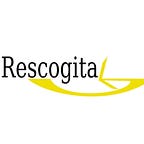Recently Indonesia made the headlines when the government announced that Jakarta is irreversibly doomed to end up under water and they need to build a new capital elsewhere. Shocking news for everybody and another tangible effect of the damage inflicted onto our planet by our actions. For Jakarta, it may be too late, yet not for the immense territory of Indonesia, and following these news of doom of gloom, I would like to deliver a more hopeful message with this article.
Let's stay in Indonesia but this time far away from the loud and busy streets to the capital onto a highly forested area called Central Kalimantan, and can already promise you that although the story starts with a sad tone, it has a happy ending.
The people living in Central Kalimantan had a choice to make, not an easy one at all, either cut down the trees and thus support their livelihoods, or perverse the lush forests of the region. Everybody was very well aware that once the trees were cut the region would suffer a lot more floods and wildfires, and on the other hand, wood is the main source of income for these people, does not indeed sound as if they really had a choice, unfortunately.
Kalimantan is on Borneo Island, its ecosystem is very unique in the world and so fragile that the millennial forests were just about to be completely lost. When Suharto ruled Indonesia his economic plans included eliminating 1.4 million hectares of woodland to make space for agricultural land and rice plantation, an absurd plan which was both an environmental and economic disaster, and not just for Indonesia. Improvised irrigation channels drained water away from the forests, trees dried up and died, and fires spread wildly, either naturally or set by the farmers wanting to gain more farming land, and entire forests existing for millennia were lost for good. And no, it does not end here, the ever-increasing fires released carbon, ending up polluting rivers and lakes, as mentioned before, a total disaster, even the authorities abandoned the ambitious and insane project upon seeing its effects. Nonetheless, the wheel was set in motion, illegal woodcutting went on as extensively as before, wildfires increase turning replantation projects to ashes. Let’s not forget that besides the Amazon forest, the Indonesian woodland is one of the earth’s lungs, meaning something needed to be done and quickly, and this time national and international authorities agreed. Amongst the plenty of interventions piloted and delivered we are going to specifically look at a project implemented by the ILO (International Labour Organisation) in Central Kalimantan.
12 months, 5 villages targeted and investments in environmental infrastructures, starting with fire prevention facilities, and in every process and aspect applying the principles of sustainability: local needs, local solutions, and community participation. The purpose was to use local resources into creating green jobs.
It all began with training farmers into peatland rehabilitation and adoption of new species to replant on the lost lands, addressing sustainable livelihoods; and in parallel applying the core value of social sustainability which is deciding each and every step jointly with the community, while involving exclusively local workers, as well as resources while paying attention to durability, renewability, and respect for the environment. This led to the construction and repair of old and new roads to ensure speedy and safe passage of workers as well as children to school. All this background work led to beginning the plantation process and installing hoses for fire prevention. Shortly after the plantation, a new training cycle began concerning entrepreneurship and agro-forestry, and that’s it really.
When looking at this project, the simplicity and common sense of the activities and interventions, and little needed investment one can’t help to think that many people share and agree with the principles of a more sustainable and green economy, regrettably, the transformation of the economic activities and adaptation is perceived as something overly expensive and extremely time consuming. There is a lesson here to be learned from Central Kalimantan; no it does not take years to convert a production process, and while investments are necessary of course they don’t have to be overwhelming, as long as there is know-how and there is community support and participation, renovation can happen.
